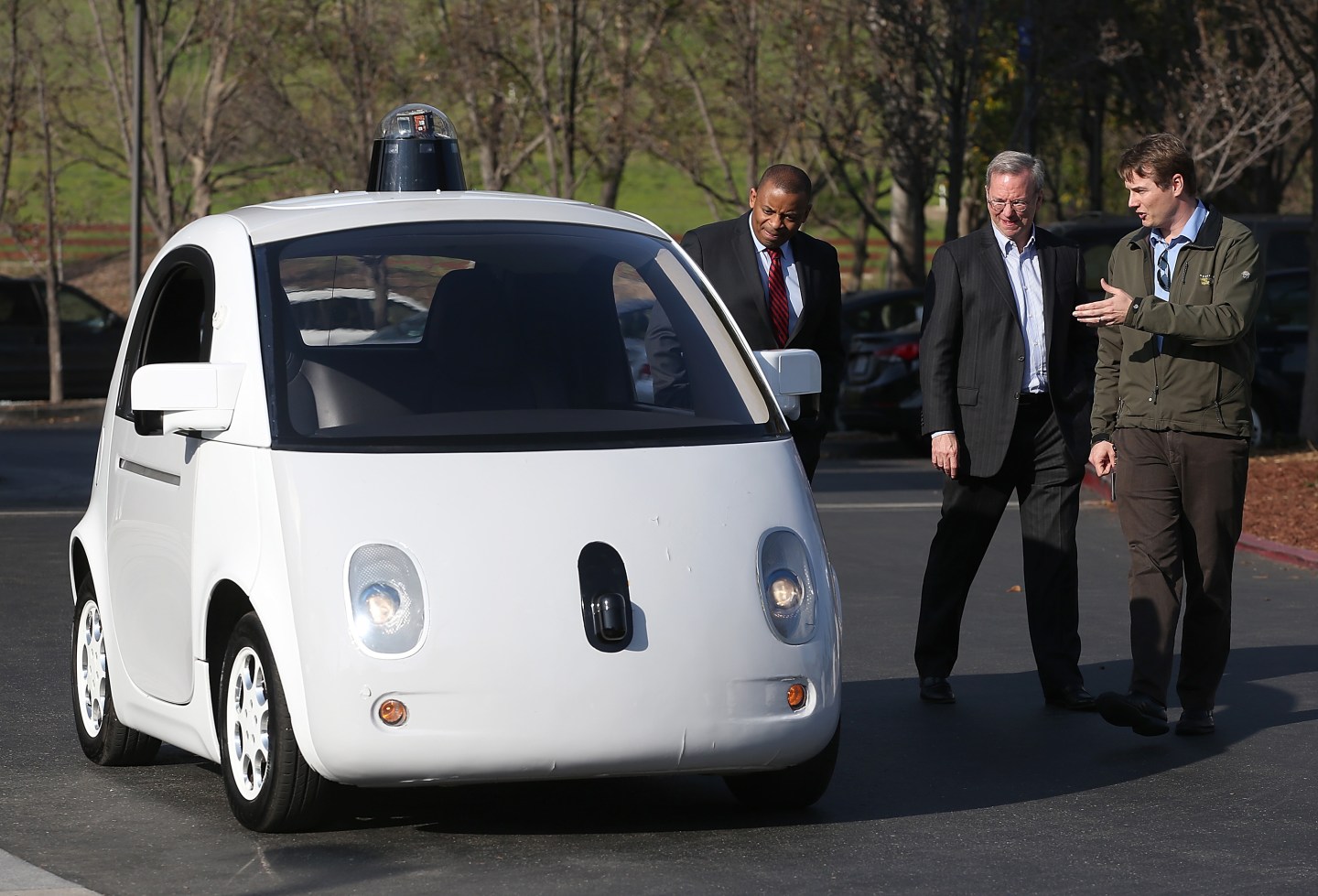A new study found that self-driving cars are far more accident-prone than ordinary cars, even though Google and other autonomous vehicle proponents have said those cars are safer because they don’t actually cause the crashes.
For every million miles driven, self-driving vehicles had 9.1 crashes, compared to just 1.9 for regular vehicles, according to a report released Thursday by the University of Michigan’s Transportation Research Institute. In other words, self-driving cars were five times as likely to crash as conventional ones, and their passengers were four times as likely to get injured (with 3.29 injuries per million miles, compared to only.77 injuries in regular cars). Self-driving cars were also rear-ended 50% more often than traditional vehicles.
The study’s findings cast shade on the benefits of autonomous cars, which have recently been hailed as a safer alternative, evidenced by a California DMV report earlier this month showing that all of the self-driving car accidents were actually the fault of a human driver in a conventional car. And a Tesla (TSLA) driver credited the electric vehicle’s new autopilot mode with saving him from a head-on collision this week when he didn’t even have his foot on the brake.
Still, in spite of the self-driving cars’ high accident rate, the University of Michigan study did not contradict the conclusions of Google (GOOG) and the DMV: The authors agreed that self-driving cars were not to blame in any of their crashes, and also found that injuries in those incidents tended to be less serious than in regular car accidents. Finally, self-driving cars actually have a lower fatality rate, with zero deaths resulting from their crashes.
The researchers were also careful to point out that self-driving cars are still too new and few to truly compare their safety to that of traditional vehicles: They analyzed the crash rate of 50 self-driving vehicles with a total 1.2 million miles on their odometers, alongside a larger sample of 269 million regular vehicles that racked up 3 trillion miles annually. And because the autonomous vehicles in the study have so far been test-driven mostly in mild conditions—say, on the roads surrounding Google’s Mountain View, California headquarters—it’s unclear how they will fare in snow and other elements that can make crashes more dangerous.
For those reasons, the study’s authors, Brandon Schoettle and Michael Sivak, concluded: “We currently cannot rule out, with a reasonable level of confidence, the possibility that the actual rate for self-driving vehicles is lower than for conventional vehicles.”
A spokesperson for Google’s self-driving cars stressed that since the company launched the project in 2009, “Not once has our self-driving car been the cause of a collision.” In all of the crashes the company’s cars have been involved in, the spokesperson said, “There’s a clear theme of human error and inattention.”












